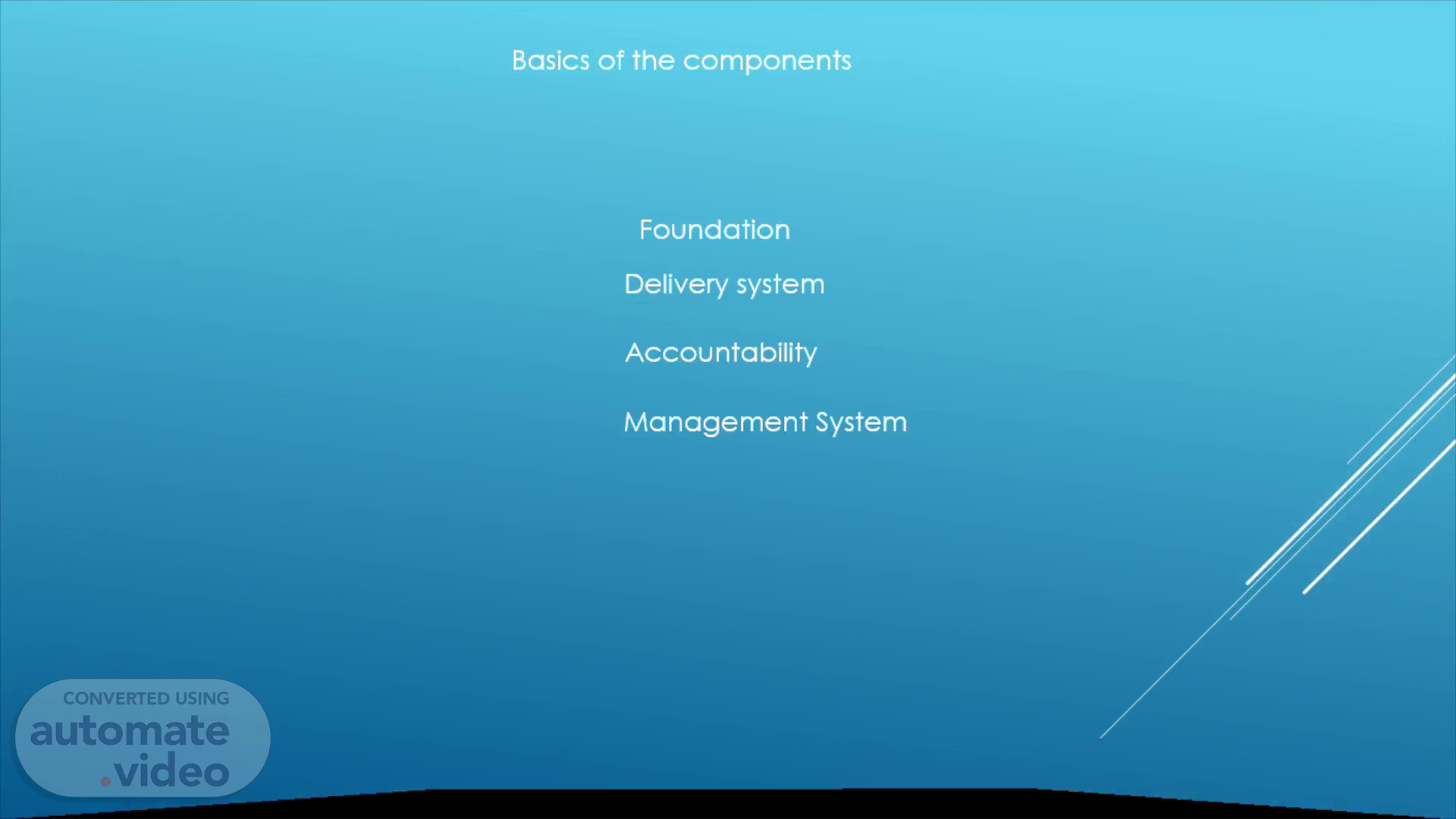
PowerPoint Presentation
Scene 1 (0s)
Basics of the components. F oundation. D elivery system.
Scene 2 (3s)
Application of the components. Foundation Within a CDSC school counselling program, the Foundation Component establishes the foundation for a successful program that serves the needs of all children. This section contains the student's values and philosophy, mission statement, and academic, vocational, and personal/social content standards. The school counselling program's mission statement defines its purpose and function, as well as how it contributes to the school's academic mission. Many school counselling program, however, do not have a purpose statement..
Scene 3 (6s)
System of Transport The Delivery System Component explains all of the activities that the professional school counsellor engages in to make his or her program available to all students, and it concentrates on the "how" of the CDSC program. Individual student planning (advice or appraisal), response services, and system assistance are all part of the delivery system. Each of these elements is critical to a CDSC program's success. As a result, it's only natural that this aspect be highlighted heavily for school counsellor candidates..
Scene 4 (9s)
Management System The Management System Component is the organizational structure for the CDSC program, and includes tasks such as meeting with an advisory council, developing calendars and action plans, monitoring student progress, using data to improve the overall program, and recognizing the difference between counselling and non-counseling related activities . Although these tasks may appear mundane to some professional school counsellors, they are an area where there is room for improvement and are critical to the CDSC program's daily success. Under the supervision of their school counselling supervisor, the school counsellor trainee could assist in the formation of an advisory council. The advisory council is an essential body of people that the school counsellor may utilize to help create goals for the counselling program, discuss successes during the school year, and seek opinion and support on an on-going basis. Following the trainee's observation of the school counselling program, he or she may be able to identify key stakeholders with necessary skills to help the program run smoothly..
Scene 5 (12s)
Accountability System The management system and the accountability system (data analysis) are inextricably intertwined (collecting data). School counsellors, like many other professions, must demonstrate their efficacy as a team member inside the school system. Researchers have also encouraged school counsellors to participate in data gathering that reveals how school counsellors play an important role in academic development at the programme , school, classroom/teacher, and student levels. The accountability system is made up of three elements: results reporting, school counsellor performance requirements, and a programme audit..
Scene 6 (15s)
Advantages of using this ASCA model components in a school counseling program.
Scene 7 (18s)
Obstacles to implementing the components. Components do not recognize that counselors perform a variety of functions. Provides little assistance for those who cannot implement the model due to lack of resources.